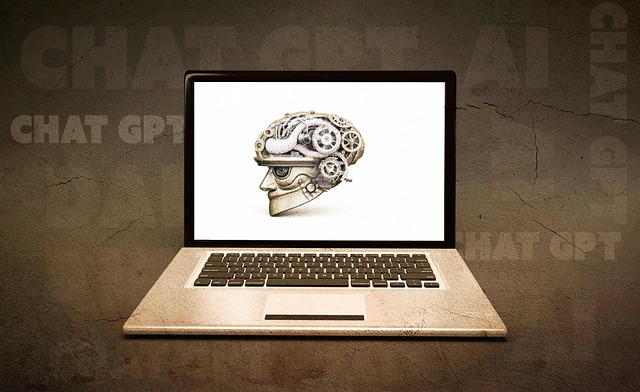AI chatbots are transforming user interactions by offering personalized experiences through machine learning algorithms. They adapt to individual preferences, behaviors, and past conversations to provide tailored responses, recommendations, and contextually relevant answers. This enhances user satisfaction and fosters deeper connections. Businesses can leverage data-driven strategies, combining user behavior, preferences, and interactions to enable AI models learn and adapt. Balancing customization with privacy is key while advancing natural language processing ensures AI chatbots evolve into ethical decision-making partners.
Personalization in AI chatbots is transforming user experiences, driving engagement and satisfaction to new heights. In today’s competitive digital landscape, AI technologies offer unprecedented opportunities to tailor interactions based on individual preferences and behaviors. This article explores the multifaceted impact of personalization in AI chatbots, from enhancing user journeys to fostering deeper connections. We delve into implementation strategies, future trends, and ethical considerations shaping the evolution of this game-changing technology, with a particular focus on ai chatbot applications.
- Understanding Personalization in AI Chatbots
- The Impact on User Engagement and Satisfaction
- Implementation Strategies for Effective Personalization
- Future Trends and Ethical Considerations
Understanding Personalization in AI Chatbots

Personalization is a key aspect of modern AI chatbots, designed to create a more engaging and intuitive user experience. By leveraging machine learning algorithms, these bots can adapt their responses based on individual user preferences, behavior patterns, and even emotional cues. This tailored approach allows for a unique interaction that feels almost human-like.
AI chatbots use data collected from past conversations and user profiles to offer personalized recommendations, tailored content, and contextually relevant answers. Whether it’s remembering a user’s preferred language or recognizing their mood based on word choices, these bots strive to anticipate needs and preferences, thereby increasing user satisfaction and fostering a deeper connection.
The Impact on User Engagement and Satisfaction

Personalization through AI chatbots significantly enhances user engagement and satisfaction. By leveraging machine learning algorithms, these chatbots can adapt to individual users’ preferences, behaviors, and interactions, offering tailored responses and recommendations. This level of customization creates a more personalized experience, fostering deeper user investment in the platform or service. Users are more likely to return when they feel seen, understood, and appreciated through such individualized attention.
Furthermore, AI chatbots can provide 24/7 support and assistance, ensuring users receive timely responses to their queries and concerns. This instant gratification contributes to higher user retention rates as users no longer face delays or obstacles in accessing help. The ability to offer personalized interactions at scale makes AI chatbots a powerful tool for businesses aiming to boost engagement and create lasting user satisfaction.
Implementation Strategies for Effective Personalization

Personalization in AI, particularly through AI chatbots, is a powerful tool for enhancing user engagement. To implement effective strategies, businesses should focus on data-driven approaches. By leveraging user behavior, preferences, and interactions, AI models can learn and adapt to individual needs. This involves collecting and analyzing diverse data sources, such as purchase history, browsing patterns, and feedback, to create detailed user profiles.
Customized experiences can then be tailored based on these insights. For instance, a retail ai chatbot could offer product recommendations aligned with past purchases or browsing behavior. Similarly, content delivery can be personalized by presenting users with relevant articles, videos, or promotions that match their interests. The key is to strike a balance between customization and privacy, ensuring users feel empowered while their data is securely utilized to create meaningful interactions.
Future Trends and Ethical Considerations

As AI chatbots continue to evolve, future trends suggest an even greater emphasis on personalization. Advanced natural language processing and machine learning algorithms will enable more sophisticated understanding of user preferences, behaviors, and emotional cues. This will result in highly tailored interactions, where every conversation feels unique and relevant. Chatbots will become not just tools for information retrieval but partners in decision-making, offering customized recommendations and insights based on individual needs and goals.
However, amidst this exciting progress, ethical considerations cannot be overlooked. Privacy and data security remain paramount as chatbots process vast amounts of user data. Ensuring transparency about data collection practices and giving users control over their information is essential for building trust. Additionally, mitigating bias in AI models is crucial to prevent discriminatory outcomes. Developers must strive for fairness, ensuring that chatbot responses are unbiased and do not perpetuate societal biases or reinforce stereotypes. Balancing innovation with ethical responsibility will be key to shaping a future where AI chatbots enhance user engagement while upholding core values of privacy, equity, and respect.
